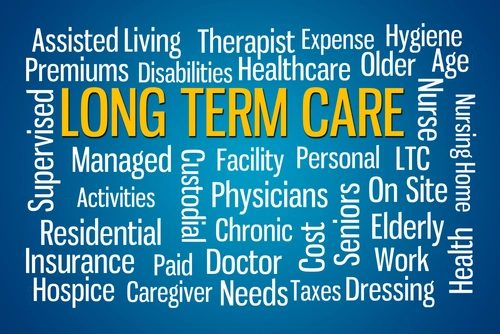CMS Outlines the 6 Conditions of Chronic Care Management Payment

Plus: Here’s why the conversion factor looks slightly different in January than now.
If you that read our analysis of the Physician Fee Schedule Final Rule in last week’s Insider, you may have noticed a discrepancy—although the conversion factor is supposed to remain at 2014 levels, the numbers between now and January look slightly different. You don’t need to adjust your glasses—you just have to understand how CMS makes its calculations.
“As you know, for 2014, the conversion factor is 35.8228,” said CMS’s Kathy Bryant during a Nov. 12 CMS Open Door Forum. “From Jan. 1 to March 31, the conversion factor will be 35.8013,” she said. “The difference between those two is related to the budget neutrality adjustment that was necessary based upon changes we made in the RVUs and fee schedule of -0.06 percent,” she said. Of course, on April 1, the conversion factor will change even more dramatically, dropping 21.2 percent to $28.2239, Bryant added.
In other pricing news, CMS reports that some financial decisions about code-specific payment rates will be made in the near future. One caller to the forum asked what types of payment figures CMS will apply to the new drug screen codes (such as 80300-80304) that will be effective as of Jan. 1. CMS’s Marc Hartstein responded that new CPT® codes go through an annual public meeting in July and the payment decisions are announced thereafter. Because several commenters following this year’s meeting said that the G codes for drug testing, which were recommended as crosswalks, are not applicable to the new CPT® codes for 2015, CMS is considering that and will make a decision on payment for the new drug screening codes “within the next week or so.”
CMS Lays Down CCM Rules
If you were rejoicing about CMS’s new payment of $40.39 per month for chronic care management, keep in mind that the agency will require you to meet specific rules before you collect. “In 2015 we will be paying for chronic care management services,” Bryant said during the call. “We wanted to recognize the critical non-face-to-face time and the services of advanced primary care,” she said. As we outlined in the last issue of the Insider, patients with two or more chronic conditions can benefit from the service, which is billable using code 94990, but you must first meet the following requirements, Bryant said:
You must provide 20 minutes or more of the service per calendar month. “This is not a per beneficiary per month payment,” Bryant said. “It is only paid in the calendar month in which a practitioner or their offices provide 20 minutes’ worth of service.”
Co-insurance charges apply, which means that you must inform the beneficiary that you plan to bill for it.
Change Your Narrative
In addition, physicians hoping for an end to the home health face-to-face requirement were left disappointed, but CMS has adjusted one burdensome requirement for doctors. “The Affordable Care Act requires the certifying physician to document that a face-to-face encounter occurred with the patient before certifying that a patient is eligible for the home health benefit,” explained CMS’s Hillary Loeffler during the call. Currently, the physician must write a narrative explaining why the encounter’s clinical findings support that the patient is homebound and requires skilled services.
“Effective for home health episodes of care starting on Jan. 1, 2015, the final rule eliminates the narrative requirement,” Loeffler said. Doctors will have to certify that a face-to-face visit occurred, but can document the encounter without completing a narrative. “For medical review purposes, the new regulations require certifying physicians to provide the medical record documentation that supports the certification of patient eligibility for the home health benefit” to CMS or other reviewers upon request, she added.
CMS is offering a MLN Matters education call addressing the change to physicians on Dec. 16. The 1.5-hour call that starts at 1:30 p.m. ET, “Certifying Patients for the Medicare Home Health Benefit,” has a target audience of “physicians who certify patients for the Medicare home health benefit, hospital/Skilled Nursing Facility discharge planners, non-physician practitioners who are allowed to perform Medicare home health face-to-face encounters, and home health agencies,” CMS says in a notice about the call.

